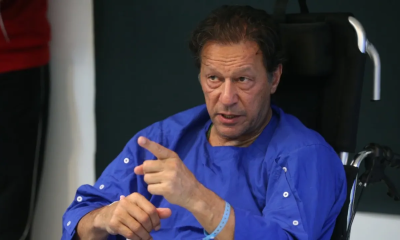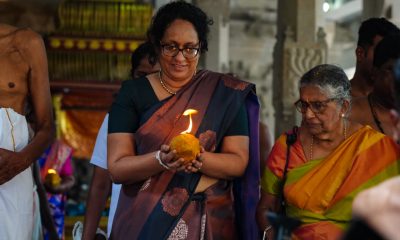Features
Serious flaws in Geneva resolution
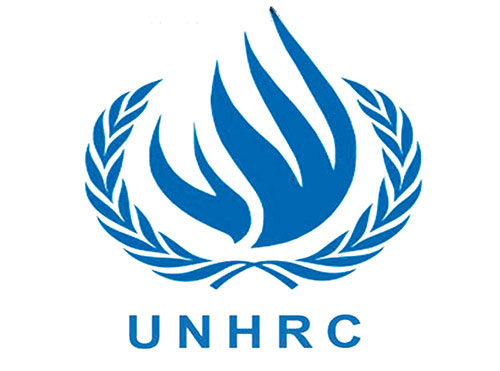
By Neville Ladduwahetty
Resolution A/HRC/46/L.Rev.1 dated 16 March 2021 has been adopted by the UN Human Rights Council based on procedures and practices adopted by Committees of the General Assembly. Of the 47 Members in the Council, 22 Member States cast an affirmative vote, 11 members opposed it, and 14 abstained. The procedure adopted does not recognize the number of votes that abstained. Therefore, adoption of the Resolution was based on 22 affirmative votes, which is less than half the 47-members in the Council. This outcome should be a cause to fault the Council for adopting a procedure that permits a Resolution to be adopted even when more than half of its members decided not to support it for whatever reason.
However, other agencies of the UN adopt other procedures. For instance, the 15-member Security Council requires nine affirmative votes for a decision to be adopted. Others who see a moral obligation to the institution they represent require half plus one for a decision to be adopted. Simple majorities in most Parliaments require half plus one of its elected members for a Bill to become Law. Therefore, there is nothing comical if perceived from another perspective, that the resolution did not secure a majority of the 47 Member Human Rights Council and furthermore, that 25 Members did not affirmatively support the Resolution. The lesson, in particular for the Human Rights Council, is that the basis for adopting a Resolution should be revisited, because the current practice allows Resolutions to be adopted by less than half the number in the Council. This is not good enough a threshold for a UN institution as vital as the Human Rights Council where much is at stake for all States.
Notwithstanding all of the above, the hard reality is that the Resolution was adopted. Another hard reality that is of serious consequence is that the adoption of the Resolution comes at a great cost to the purposes and principles of the United Nations Charter. In fact, having stated at the very outset that the Resolution is “Guided by the purposes and principles of the Charter of the United Nations …” the Resolution goes on to violate Article 1(2) and Article 2(7) of the Charter. In addition, it recalls co-sponsored Resolutions of 2015, 2017, and 2019, despite withdrawal from co-sponsorship because they violate Sri Lanka’s Constitution; a right granted under the Vienna Convention and furthermore, violates the mandate granted to the Human Rights Council under General Assembly Resolution 60/251. Under these circumstances, such a flawed Resolution should not be adopted, particularly with votes less than half the membership in the Council.
Article 1(2) states: “To develop friendly relations among nations based on respect of the principle of equal rights and self-determination of peoples…”. AND Article 2(7) states: “Nothing contained in the present Charter shall authorize the United Nations to intervene in matters which are essentially within the domestic jurisdiction of any state…”.
Article 1(2): Right of Self-Determination
The International Covenant on Economic, Social and Cultural Rights AND the International Covenant on Civil and Political Rights state in Article 1 of their respective Covenants:
“All peoples have the right of self-determination. By virtue of that right they freely determine their political status and freely pursue their economic, social and cultural development”.
In view of the people’s right to freely determine its political status, the Resolution of the Core-Group states: “…to ensure that all provincial councils, including the northern and eastern provincial councils, are able to operate effectively, in accordance with the thirteenth amendment to the Constitution of Sri Lanka” (Preamble to the Resolution)
COMMENT: This is a violation of the right of self-determination of a people to freely administer and govern themselves because it binds the people of Sri Lanka to a particular form of internal Government, and denies them the opportunity to self-determine a form of Local Government that best serves them. Therefore. this provision amounts to a denial of the fundamental freedom of a Peoples to govern themselves under a form of Government of their choosing. For the Human Rights Council to impose restrictions on how a Member State should govern itself is a denial of their fundamental right to self-determination.
The Preamble states: “Noting the enactment of the twentieth amendment to the Constitution of Sri Lanka, while stressing the importance of democratic governance and independent oversight of key institutions”.
COMMENT: The need to remind the people of Sri Lanka the “importance of democratic governance and oversight key institutions” is an insult in view of the fact that the amendment is a product the people of Sri Lanka have determined in keeping with their right of self-determination. Furthermore, Sri Lanka is not the only country to function under a Presidential system of government under provisions of separation of power and the internal arrangements in each are different as they are with the systems of governance in each state that supported the Resolution. Under the circumstances, the need to draw special attention to arrangements in Sri Lanka is a slur on what Sri Lanka has rightfully determined for itself.
It is indeed comical for the U.K. as the sponsor of the Resolution to “stress the importance of democratic governance”, when three-fourths (¾) of U.K. Parliament was for staying in the European Union whereas the majority of the people of U.K. wanted to leave the EU, thus laying bare the U.K.’s deficit in democratic governance.
Article 2(7): Domestic Jurisdiction
Section 2 of the Resolution states: “…implement the recommendations made by the Office and to give due consideration to the recommendations made by the special procedures ….”
Section 7 of the Resolution ‘expresses serious concern at the trends emerging over the past year, which represent a clear early warning sign of a deteriorating situation of human rights in Sri Lanka, including the accelerating militarization of civilian government functions; the erosion of the independence of the judiciary and key institutions; ongoing impunity and political obstruction; policies that adversely affect the right to freedom of religion or belief; increased marginalization of persons belonging to the Tamil and Muslim communities; surveillance and intimidation of civil society; restrictions on media; freedom, and shrinking democratic space; arbitrary detentions; alleged torture and sexual and gender-based violence’.
COMMENT: Section 7 of the Resolution is influenced by the Report of the Office of the High Commissioner. It contains comments and observations that violate provisions of Article 2(7) of the UN Charter in respect of issues that are “essentially within the domestic jurisdiction of any state” cited above.
Unlike under normal circumstances, the literal interpretation of Article 2(7) that prohibits UN from intervening in issues domestic as enunciated by Professor Kelsen and others of similar view, is justified under the extremely extraordinary background that Sri Lanka and the rest of mankind had to face due to the COVID-19 pandemic. This view was underscored by the UN when it decided NOT to intervene in issues domestic relating to how member states coped with the COVI-19 pandemic. What the Resolution addressed instead was the situation that prevailed in Sri Lanka in the background of a terrorist attack by Muslim extremists in 2019, and the measures adopted to cope with the pandemic in the absence of international guidelines that the UN should have spearheaded.
The extraordinary circumstances referred to above started with a new President being elected in November 2019. A bare two months later, starting January 2020, Sri Lanka encountered its first COVID-19 patient. Until August 2020 when a new Parliament was elected, it was the Executive that had to deal with the unprecedented challenges of COVID-19 pandemic.
In fact, most countries were at a loss as to what strategies to adopt to deal with the pandemic. Furthermore, a fact that should not be overlooked is that during the period of review by the Council, the Legislative and Executive Branches of the government in Sri Lanka had existed only for four months.
At the end of the day, governments have to make hard choices. In the background of a raging pandemic the choice is whether to implement strict controls by deploying personnel known for their ability to ensure strict adherence to health guidelines, or to relax them. Those countries that have decided to leave it to individuals as a matter of individual choice have experienced far more deaths than countries such as Sri Lanka that decided otherwise. Are they guilty of fratricide? To fault elected representatives for the choices they made in the fulfillment of their responsibilities to their people, is to place individual choice at a premium over state-initiated guidelines to contain a global crisis. Not to recognize the positive results in terms of lives saved because of the measures adopted by the government is not to recognize the most fundamental of all human rights which is right to life.
The impression conveyed upon perusing the list of societal shortcomings cited in Section 7 is that they are unique to Sri Lanka. On the other hand, over the span of one year there would be instances of societal shortcomings similar to those cited in Section 7, in every country. For instance, in other countries too, policies exist that affect freedom of religion or belief; marginalization of persons or groups; restrictions on media freedom; shrinking democratic space; sexual and gender-based violence etc. Such shortcomings exist, albeit to different degrees, in all of the 22 countries that supported the Resolution despite the existence of independent institutions, or how liberal and democratic their policies are. Therefore, what is so special or unique about Sri Lanka for it to deserve special attention?
Mandate of the Human Rights Council
Section 6 of the Resolution states: “Recognizes the importance of preserving and analyzing evidence relating to violations and abuses of human rights and related crimes in Sri Lanka…and to develop possible strategies for future accountability processes for gross violations of human rights or serious violations of international humanitarian law…and to support relevant judicial proceedings in Member States with competent jurisdiction”.
COMMENT: The Human Rights Council has NO MANDATE nor the COMPETENCE to collect evidence relating to international humanitarian law or to support judicial proceedings in Member States. The Council is expected to function within the mandate stated in UN Resolution 60/251. The relevant provisions are:
3. Decides also that the Council should address situations of violations of human rights, including gross and systematic violations, and make recommendations thereon. It should also promote the effective coordination and the mainstreaming of human rights within the United Nations system;
4. Decides further that the work of the Council shall be guided by the principles of universality, impartiality, objectivity and non-selectivity, constructive international dialogue and cooperation, with a view to enhancing the promotion and protection of all human rights, civil, political, economic, social and cultural rights, including the right to development…”.
The mandate of the Council does not authorize it to share its findings with other Member states for them to engage in judicial proceedings because it violates the “principle of equal sovereignty” (Article 1(1) of the Charter. If they do, what about the evidence sequestered for thirty years? Instead, what the Council is supposed to do, is to make recommendations to the states concerned. By focusing on Sri Lanka, the Council is being selective, thus violating the principles it is supposed to follow as stated in Paragraph 4 cited above.
A fact that should be borne in mind is that no investigations that could lead to a prosecution would be possible, using any evidence gathered for the purpose of future accountability exercises because access to victims and witnesses would not be possible due to Paragraph 25 of the OISL Report relating to confidentiality in the OISL Report.
CONCLUSION
Resolution A/HRC/46/L.Rev.1 dated 16 March 2021 has been adopted by the UN Human Rights Council based on the procedures and practices adopted by Committees of the General Assembly. Since the procedure adopted does not take into account the 14 abstained votes, the 22 members who supported the resolution prevailed over the 11 that opposed. Consequently, the procedure adopted enabled the Council to adopt the Resolutions based on votes that were less than half of the 47-member Council.
While the procedure adopted by the Council is acceptable for Committees of the General Assembly, the Human Rights Council is in a league by itself. Since its decisions impact on nearly every aspect of human life, the procedures and practices it adopts should be unique and stand alone. Another Council of similar standing is the Security Council. The procedure adopted by them is that out of its fifteen members at least nine should vote affirmatively for a decision to be adopted. Democratic Parliaments require half plus one of its members for a Bill or decision to have any legitimacy. Therefore, Sri Lanka should take the initiative to table a Resolution in the General Assembly calling on the Human Rights Council to take a fresh approach in the adoption of Resolutions. The outcome of such an approach should as a minimum be that even if the abstaining votes are not recognized, no Resolution should be adopted without half plus one of its members casting an affirmative vote for it to have any legitimacy i.e., more than 24 affirmative votes.
Having stated at the very outset that the resolution is “Guided by the purposes and principles of the Charter”, the Resolution goes on to violate Article 1(2) and 2(7) of the Charter, right of a State to withdraw from an undertaking if it is in conflict with the “internal law of fundamental importance” to the State based on a right granted under Article 46 of the Vienna Convention, and violates the mandate granted to the Human Rights Council. If a Resolution violates the stated purposes and principles of the UN Charter, the General Assembly should take note and declare such a Resolution unadoptable.
The call on the Sri Lankan government to hold Provincial Council elections and to ensure that all Provincial Councils operate effectively in accordance with the 13th Amendment is a violation of Article 1(2) because it denies the right of self-determination to institute local government arrangements that suit them best and to bind the people of Sri Lanka to internal arrangements of governance set by external entities.
Article 2(7) does not “authorize the United Nations to intervene in matters which are essentially within the domestic jurisdiction of any state…”. In keeping with this provision the UN did NOT intervene in the decisions taken by member states to handle the enormous challenges arising from the COVID-19 pandemic. Having stayed in the sidelines they have decided to single out Sri Lanka to document what the Council determines as shortcomings in the manner Sri Lanka coped with the crisis presented by the COVI-19 pandemic in a background of a Muslim terrorist attack that denied the fundamental right to life of hundreds.
The resolution is not binding on Sri Lanka. Furthermore, as stated above it violates certain provisions of the UN Charter and holds Sri Lanka to commitments it withdrew from on legitimate grounds. What Sri Lanka could do is table a Resolution in the General Assembly highlighting the issues at stake and seek redress. In addition, such a Resolution should propose a revision on the lines suggested above to the procedures adopted by the Human Rights Council in respect of how it decides to adopt Resolutions since current procedures are totally inappropriate for an all-important institution as the Human Rights Council.
Features
Lasting solutions require consensus
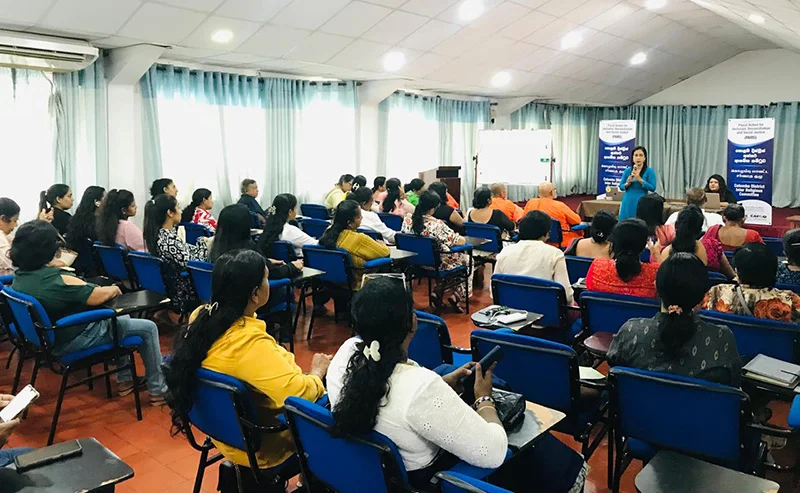
Problems and solutions in plural societies like Sri Lanka’s which have deep rooted ethnic, religious and linguistic cleavages require a consciously inclusive approach. A major challenge for any government in Sri Lanka is to correctly identify the problems faced by different groups with strong identities and find solutions to them. The durability of democratic systems in divided societies depends less on electoral victories than on institutionalised inclusion, consultation, and negotiated compromise. When problems are defined only through the lens of a single political formation, even one that enjoys a large electoral mandate, such as obtained by the NPP government, the policy prescriptions derived from that diagnosis will likely overlook the experiences of communities that may remain outside the ruling party. The result could end up being resistance to those policies, uneven implementation and eventual political backlash.
A recent survey done by the National Peace Council (NPC), in Jaffna, in the North, at a focus group discussion for young people on citizen perception in the electoral process, revealed interesting developments. The results of the NPC micro survey support the findings of the national survey by Verite Research that found that government approval rating stood at 65 percent in early February 2026. A majority of the respondents in Jaffna affirm that they feel safer and more fairly treated than in the past. There is a clear improving trend to be seen in some areas, but not in all. This survey of predominantly young and educated respondents shows 78 percent saying livelihood has improved and an equal percentage feeling safe in daily life. 75 percent express satisfaction with the new government and 64 percent believe the state treats their language and culture fairly. These are not insignificant gains in a region that bore the brunt of three decades of war.
Yet the same survey reveals deep reservations that temper this optimism. Only 25 percent are satisfied with the handling of past issues. An equal percentage see no change in land and military related concerns. Most strikingly, almost 90 percent are worried about land being taken without consent for religious purposes. A significant number are uncertain whether the future will be better. These negative sentiments cannot be brushed aside as marginal. They point to unresolved structural questions relating to land rights, demilitarisation, accountability and the locus of political power. If these issues are not addressed sooner rather than later, the current stability may prove fragile. This suggests the need to build consensus with other parties to ensure long-term stability and legitimacy, and the need for partnership to address national issues.
NPP Absence
National or local level problems solving is unlikely to be successful in the longer term if it only proceeds from the thinking of one group of people even if they are the most enlightened. Problem solving requires the engagement of those from different ethno-religious, caste and political backgrounds to get a diversity of ideas and possible solutions. It does not mean getting corrupted or having to give up the good for the worse. It means testing ideas in the public sphere. Legitimacy flows not merely from winning elections but from the quality of public reasoning that precedes decision-making. The experience of successful post-conflict societies shows that long term peace and development are built through dialogue platforms where civil society organisations, political actors, business communities, and local representatives jointly define problems before negotiating policy responses.
As a civil society organisation, the National Peace Council engages in a variety of public activities that focus on awareness and relationship building across communities. Participants in those activities include community leaders, religious clergy, local level government officials and grassroots political party representatives. However, along with other civil society organisations, NPC has been finding it difficult to get the participation of members of the NPP at those events. The excuse given for the absence of ruling party members is that they are too busy as they are involved in a plenitude of activities. The question is whether the ruling party members have too much on their plate or whether it is due to a reluctance to work with others.
The general belief is that those from the ruling party need to get special permission from the party hierarchy for activities organised by groups not under their control. The reluctance of the ruling party to permit its members to join the activities of other organisations may be the concern that they will get ideas that are different from those held by the party leadership. The concern may be that these different ideas will either corrupt the ruling party members or cause dissent within the ranks of the ruling party. But lasting reform in a plural society requires precisely this exposure. If 90 percent of surveyed youth in Jaffna are worried about land issues, then engaging them, rather than shielding party representatives from uncomfortable conversations, is essential for accurate problem identification.
North Star
The Leader of the Lanka Sama Samaja Party (LSSP), Prof Tissa Vitarana, who passed away last week, gave the example for national level problem solving. As a government minister he took on the challenge the protracted ethnic conflict that led to three decades of war. He set his mind on the solution and engaged with all but never veered from his conviction about what the solution would be. This was the North Star to him, said his son to me at his funeral, the direction to which the Compass (Malimawa) pointed at all times. Prof Vitarana held the view that in a diverse and plural society there was a need to devolve power and share power in a structured way between the majority community and minority communities. His example illustrates that engagement does not require ideological capitulation. It requires clarity of purpose combined with openness to dialogue.
The ethnic and religious peace that prevails today owes much to the efforts of people like Prof Vitarana and other like-minded persons and groups which, for many years, engaged as underdogs with those who were more powerful. The commitment to equality of citizenship, non-racism, non-extremism and non-discrimination, upheld by the present government, comes from this foundation. But the NPC survey suggests that symbolic recognition and improved daily safety are not enough. Respondents prioritise personal safety, truth regarding missing persons, return of land, language use and reduction of military involvement. They are also asking for jobs after graduation, local economic opportunity, protection of property rights, and tangible improvements that allow them to remain in Jaffna rather than migrate.
If solutions are to be lasting they cannot be unilaterally imposed by one party on the others. Lasting solutions cannot be unilateral solutions. They must emerge from a shared diagnosis of the country’s deepest problems and from a willingness to address the negative sentiments that persist beneath the surface of cautious optimism. Only then can progress be secured against reversal and anchored in the consent of the wider polity. Engaging with the opposition can help mitigate the hyper-confrontational and divisive political culture of the past. This means that the ruling party needs to consider not only how to protect its existing members by cloistering them from those who think differently but also expand its vision and membership by convincing others to join them in problem solving at multiple levels. This requires engagement and not avoidance or withdrawal.
by Jehan Perera
Features
Unpacking public responses to educational reforms
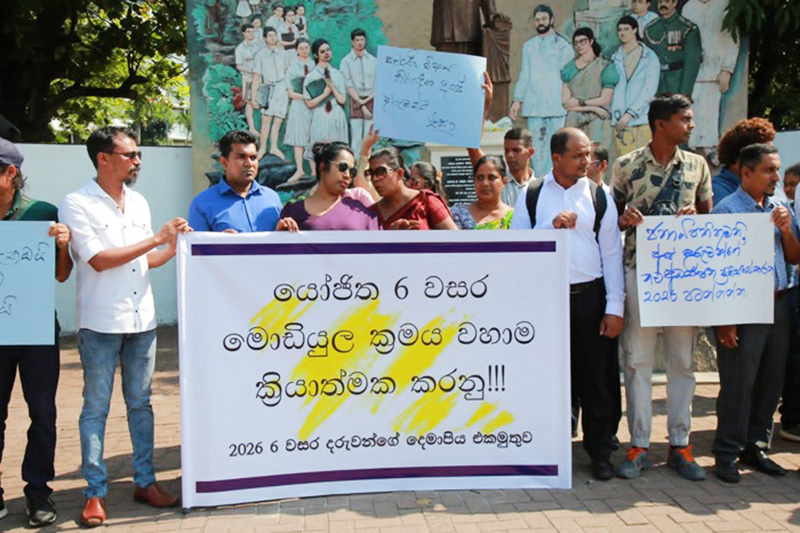
 As the debate on educational reforms rages, I find it useful to pay as much attention to the reactions they have excited as we do to the content of the reforms. Such reactions are a reflection of how education is understood in our society, and this understanding – along with the priorities it gives rise to – must necessarily be taken into account in education policy, including and especially reform. My aim in this piece, however, is to couple this public engagement with critical reflection on the historical-structural realities that structure our possibilities in the global market, and briefly discuss the role of academics in this endeavour.
As the debate on educational reforms rages, I find it useful to pay as much attention to the reactions they have excited as we do to the content of the reforms. Such reactions are a reflection of how education is understood in our society, and this understanding – along with the priorities it gives rise to – must necessarily be taken into account in education policy, including and especially reform. My aim in this piece, however, is to couple this public engagement with critical reflection on the historical-structural realities that structure our possibilities in the global market, and briefly discuss the role of academics in this endeavour.
Two broad reactions
The reactions to the proposed reforms can be broadly categorised into ‘pro’ and ‘anti’. I will discuss the latter first. Most of the backlash against the reforms seems to be directed at the issue of a gay dating site, accidentally being linked to the Grade 6 English module. While the importance of rigour cannot be overstated in such a process, the sheer volume of the energies concentrated on this is also indicative of how hopelessly homophobic our society is, especially its educators, including those in trade unions. These dispositions are a crucial part of the reason why educational reforms are needed in the first place. If only there was a fraction of the interest in ‘keeping up with the rest of the world’ in terms of IT, skills, and so on, in this area as well!
Then there is the opposition mounted by teachers’ trade unions and others about the process of the reforms not being very democratic, which I (and many others in higher education, as evidenced by a recent statement, available at https://island.lk/general-educational-reforms-to-what-purpose-a-statement-by-state-university-teachers/ ) fully agree with. But I earnestly hope the conversation is not usurped by those wanting to promote heteronormativity, further entrenching bigotry only education itself can save us from. With this important qualification, I, too, believe the government should open up the reform process to the public, rather than just ‘informing’ them of it.
It is unclear both as to why the process had to be behind closed doors, as well as why the government seems to be in a hurry to push the reforms through. Considering other recent developments, like the continued extension of emergency rule, tabling of the Protection of the State from Terrorism Act (PSTA), and proposing a new Authority for the protection of the Central Highlands (as is famously known, Authorities directly come under the Executive, and, therefore, further strengthen the Presidency; a reasonable question would be as to why the existing apparatus cannot be strengthened for this purpose), this appears especially suspect.
Further, according to the Secretary to the MOE Nalaka Kaluwewa: “The full framework for the [education] reforms was already in place [when the Dissanayake government took office]” (https://www.wsws.org/en/articles/2025/08/12/wxua-a12.html, citing The Morning, July 29). Given the ideological inclinations of the former Wickremesinghe government and the IMF negotiations taking place at the time, the continuation of education reforms, initiated in such a context with very little modification, leaves little doubt as to their intent: to facilitate the churning out of cheap labour for the global market (with very little cushioning from external shocks and reproducing global inequalities), while raising enough revenue in the process to service debt.
This process privileges STEM subjects, which are “considered to contribute to higher levels of ‘employability’ among their graduates … With their emphasis on transferable skills and demonstrable competency levels, STEM subjects provide tools that are well suited for the abstraction of labour required by capitalism, particularly at the global level where comparability across a wide array of labour markets matters more than ever before” (my own previous piece in this column on 29 October 2024). Humanities and Social Sciences (HSS) subjects are deprioritised as a result. However, the wisdom of an education policy that is solely focused on responding to the global market has been questioned in this column and elsewhere, both because the global market has no reason to prioritise our needs as well as because such an orientation comes at the cost of a strategy for improving the conditions within Sri Lanka, in all sectors. This is why we need a more emancipatory vision for education geared towards building a fairer society domestically where the fruits of prosperity are enjoyed by all.
The second broad reaction to the reforms is to earnestly embrace them. The reasons behind this need to be taken seriously, although it echoes the mantra of the global market. According to one parent participating in a protest against the halting of the reform process: “The world is moving forward with new inventions and technology, but here in Sri Lanka, our children are still burdened with outdated methods. Opposition politicians send their children to international schools or abroad, while ours depend on free education. Stopping these reforms is the lowest act I’ve seen as a mother” (https://www.newsfirst.lk/2026/01/17/pro-educational-reforms-protests-spread-across-sri-lanka). While it is worth mentioning that it is not only the opposition, nor in fact only politicians, who send their children to international schools and abroad, the point holds. Updating the curriculum to reflect the changing needs of a society will invariably strengthen the case for free education. However, as mentioned before, if not combined with a vision for harnessing education’s emancipatory potential for the country, such a move would simply translate into one of integrating Sri Lanka to the world market to produce cheap labour for the colonial and neocolonial masters.
According to another parent in a similar protest: “Our children were excited about lighter schoolbags and a better future. Now they are left in despair” (https://www.newsfirst.lk/2026/01/17/pro-educational-reforms-protests-spread-across-sri-lanka). Again, a valid concern, but one that seems to be completely buying into the rhetoric of the government. As many pieces in this column have already shown, even though the structure of assessments will shift from exam-heavy to more interim forms of assessment (which is very welcome), the number of modules/subjects will actually increase, pushing a greater, not lesser, workload on students.
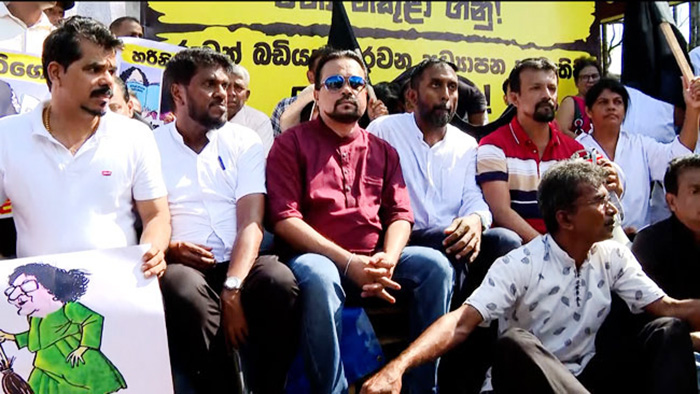
A file photo of a satyagraha against education reforms
What kind of education?
The ‘pro’ reactions outlined above stem from valid concerns, and, therefore, need to be taken seriously. Relatedly, we have to keep in mind that opening the process up to public engagement will not necessarily result in some of the outcomes, those particularly in the HSS academic community, would like to see, such as increasing the HSS component in the syllabus, changing weightages assigned to such subjects, reintroducing them to the basket of mandatory subjects, etc., because of the increasing traction of STEM subjects as a surer way to lock in a good future income.
Academics do have a role to play here, though: 1) actively engage with various groups of people to understand their rationales behind supporting or opposing the reforms; 2) reflect on how such preferences are constituted, and what they in turn contribute towards constituting (including the global and local patterns of accumulation and structures of oppression they perpetuate); 3) bring these reflections back into further conversations, enabling a mutually conditioning exchange; 4) collectively work out a plan for reforming education based on the above, preferably in an arrangement that directly informs policy. A reform process informed by such a dialectical exchange, and a system of education based on the results of these reflections, will have greater substantive value while also responding to the changing times.
Two important prerequisites for this kind of endeavour to succeed are that first, academics participate, irrespective of whether they publicly endorsed this government or not, and second, that the government responds with humility and accountability, without denial and shifting the blame on to individuals. While we cannot help the second, we can start with the first.
Conclusion
For a government that came into power riding the wave of ‘system change’, it is perhaps more important than for any other government that these reforms are done for the right reasons, not to mention following the right methods (of consultation and deliberation). For instance, developing soft skills or incorporating vocational education to the curriculum could be done either in a way that reproduces Sri Lanka’s marginality in the global economic order (which is ‘system preservation’), or lays the groundwork to develop a workforce first and foremost for the country, limited as this approach may be. An inextricable concern is what is denoted by ‘the country’ here: a few affluent groups, a majority ethno-religious category, or everyone living here? How we define ‘the country’ will centrally influence how education policy (among others) will be formulated, just as much as the quality of education influences how we – students, teachers, parents, policymakers, bureaucrats, ‘experts’ – think about such categories. That is precisely why more thought should go to education policymaking than perhaps any other sector.
(Hasini Lecamwasam is attached to the Department of Political Science, University of Peradeniya).
Kuppi is a politics and pedagogy happening on the margins of the lecture hall that parodies, subverts, and simultaneously reaffirms social hierarchies.
Features
Chef’s daughter cooking up a storm…

 Don Sherman was quite a popular figure in the entertainment scene but now he is better known as the Singing Chef and that’s because he turns out some yummy dishes at his restaurant, in Rajagiriya.
Don Sherman was quite a popular figure in the entertainment scene but now he is better known as the Singing Chef and that’s because he turns out some yummy dishes at his restaurant, in Rajagiriya.
However, now the spotlight is gradually focusing on his daughter Emma Shanaya who has turned out to be a very talented singer.
In fact, we have spotlighted her in The Island a couple of times and she is in the limelight, once gain.
When Emma released her debut music video, titled ‘You Made Me Feel,’ the feedback was very encouraging and at that point in time she said “I only want to keep doing bigger and greater things and ‘You Made Me Feel’ is the very first step to a long journey.”
Emma, who resides in Melbourne, Australia, is in Sri Lanka, at the moment, and has released her very first Sinhala single.
“I’m back in Sri Lanka with a brand new single and this time it’s a Sinhalese song … yes, my debut Sinhala song ‘Sanasum Mawana’ (Bloom like a Flower).
“This song is very special to me as I wrote the lyrics in English and then got it translated and re-written by my mother, and my amazing and very talented producer Thilina Boralessa. Thilina also composed the music, and mix and master of the track.”
Emma went on to say that instead of a love song, or a young romance, she wanted to give the Sri Lankan audience a debut song with some meaning and substance that will portray her, not only as an artiste, but as the person she is.
Says Emma: “‘Sanasum Mawana’ is about life, love and the essence of a woman. This song is for the special woman in your life, whether it be your mother, sister, friend, daughter or partner. I personally dedicate this song to my mother. I wouldn’t be where I am right now if it weren’t for her.”
On Friday, 30th January, ‘Sanasum Mawana’ went live on YouTube and all streaming platforms, and just before it went live, she went on to say, they had a wonderful and intimate launch event at her father’s institute/ restaurant, the ‘Don Sherman Institute’ in Rajagiriya.
It was an evening of celebration, good food and great vibes and the event was also an introduction to Emma Shanaya the person and artiste.
Emma also mentioned that she is Sri Lanka for an extended period – a “work holiday”.
“I would like to expand my creativity in Sri Lanka and see the opportunities the island has in store for me. I look forward to singing, modelling, and acting opportunities, and to work with some wonderful people.
“Thank you to everyone that is by my side, supporting me on this new and exciting journey. I can’t wait to bring you more and continue to bloom like a flower.”
-

 Life style3 days ago
Life style3 days agoMarriot new GM Suranga
-

 Business2 days ago
Business2 days agoMinistry of Brands to launch Sri Lanka’s first off-price retail destination
-

 Features3 days ago
Features3 days agoMonks’ march, in America and Sri Lanka
-

 Midweek Review7 days ago
Midweek Review7 days agoA question of national pride
-

 Business7 days ago
Business7 days agoAutodoc 360 relocates to reinforce commitment to premium auto care
-

 Opinion6 days ago
Opinion6 days agoWill computers ever be intelligent?
-

 Features3 days ago
Features3 days agoThe Rise of Takaichi
-

 Features3 days ago
Features3 days agoWetlands of Sri Lanka:


